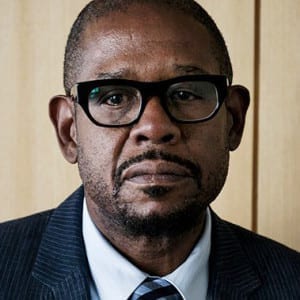There are over 1.8 billion people on this planet between the ages of 10 and 24—the most at any time in history. This figure is a positive sign, for, in all the societies and countries of the world, young women and men are a group that actively looks for opportunities to generate unprecedented change and renewal.
But today’s youth are disproportionately concentrated in the poorest and most conflict-impacted countries on Earth. In the world’s 48 least-developed countries, children and youth make up a majority of the population. The dangers of this disparity are profound.
These conditions create vicious cycles where poverty and inequality – affecting millions of young people –severely dim their societies’ futures. What’s more, poverty and inequality in one generation lead to conflict within and between nations in the next, which opens the door to a future of chronic fragility, causing further poverty and violence, and so on. Violence has always had a major impact on the lives of young people—they are often among the first to be targeted as victims or recruited to join armed forces—but for too long, decision-makers have seen youth as being only those things, victims or perpetrators, and not as partners, as equals, with the capacity to be voices for hope and forces for lasting peace and sustainable development.
Fortunately, the need to promote youth as key players in addressing the challenges of our times is increasingly acknowledged around the globe. For example, last year, the leaders of the world adopted the 2030 Agenda, which both places transformative change at the center of the national and global stages and recognizes the potential and power of youth in all countries. Therefore, in placing the 2016 International Youth Day under the theme “The Road to 2030: Eradicating Poverty and Achieving Sustainable Consumption and Production,” the United Nations decided to stress the leading contribution of young people in making concrete the universal aspirations contained in the 2030 Agenda.
With its 17 crosscutting goals, the 2030 Agenda will help the world take important steps toward achieving universal education, improving access to information, ending the use of child soldiers, and reaching other outcomes that will empower youth to participate in the political and peacemaking processes. And just last December, the UN Security Council passed its first ever resolution on the role of young people in ending armed conflict. The Security Council is calling on nations to do more not only to protect and empower youths living in areas impacted by conflict, but to engage them as leaders and decision makers who have an important part to play in shaping the future of their countries.
This is exactly what the Whitaker Peace & Development Initiative has been working toward since our founding in 2012 and with the support of such partners as UNESCO and Ericsson. We envision a world where young people everywhere are empowered with the education, the technology, and—most of all—the belief in themselves that they need to come together in staggering numbers to overwhelm their societies’ most-pressing challenges.
Because when we give young women and men the tools to become leaders and change makers, they are capable of remarkable things. In South Sudan, a nation torn by violence, two of the youth peacemakers we work with are currently serving in their nation’s parliament, bringing to the national debate a message of reconciliation and dialogue across ethnic divides. Others have received mandates from their governor to mediate long-standing conflicts between local tribes. In Uganda, former child soldiers are working together with small loans from WPDI to start businesses and community-building projects in their villages. From the ashes of war, they have become entrepreneurs and role models for the other young people in their communities.
Those are but a handful of positive stories out of a total population of 1.8 billion youth on this planet. If we could harness the energy of even a modest fraction of these eager young women and men, their small acts of goodness could help leverage peace and development to any corner of the world. Let’s resolve to empower the next generation of leaders and thinkers to do just that.




































